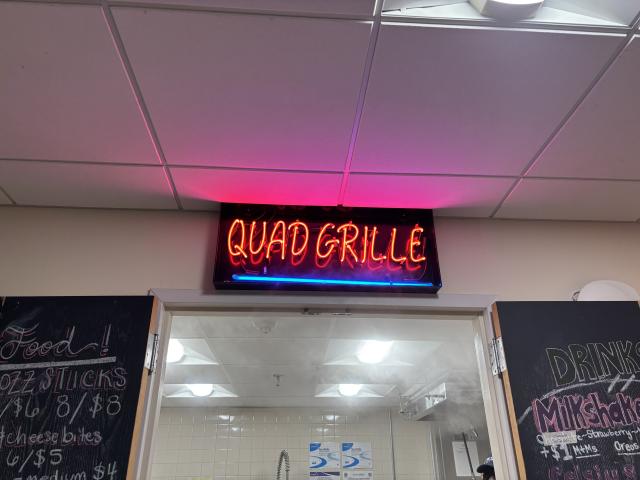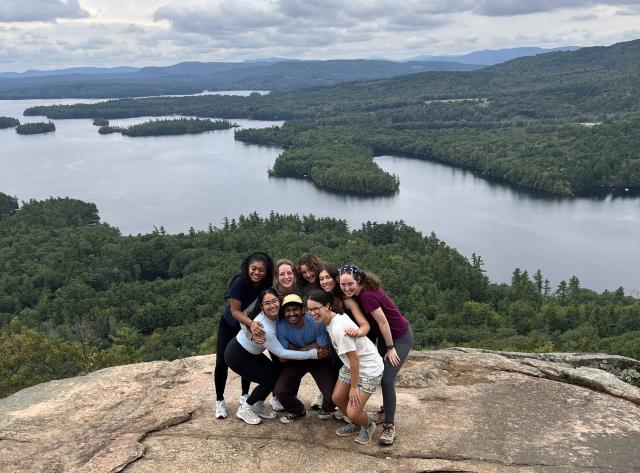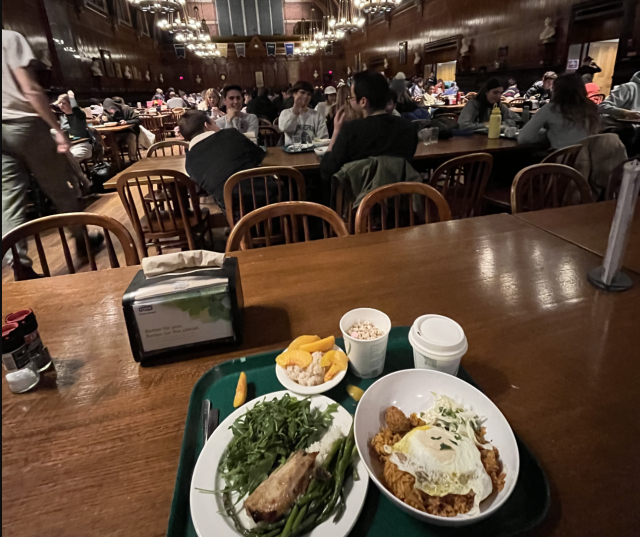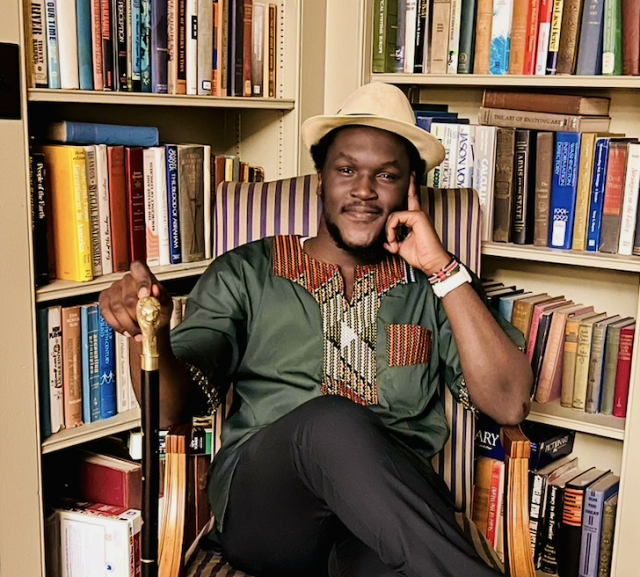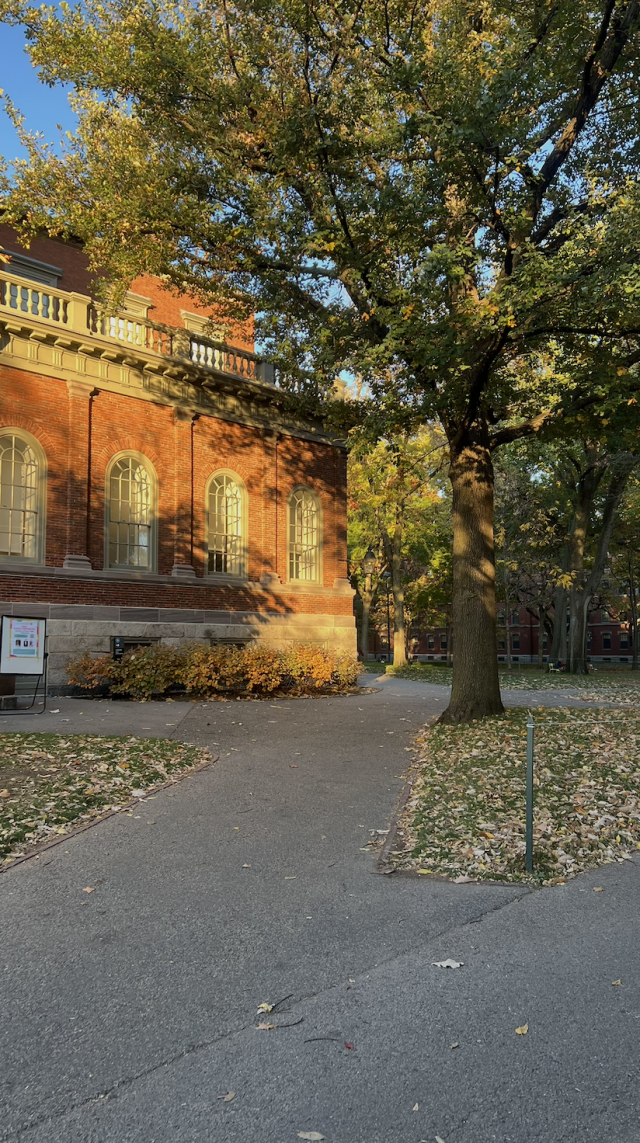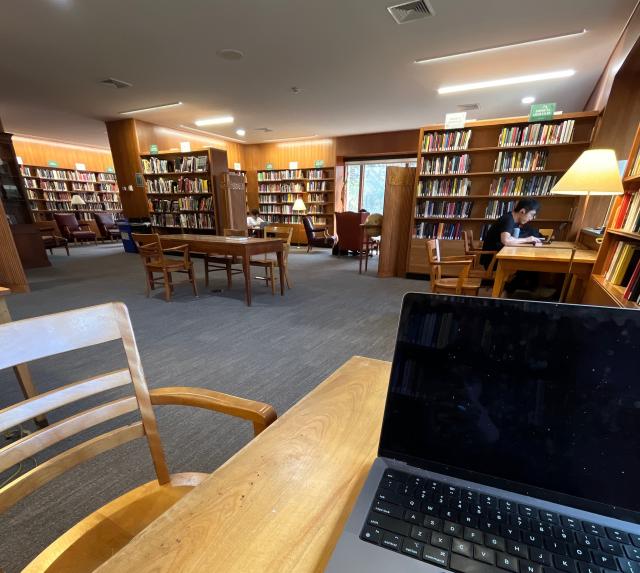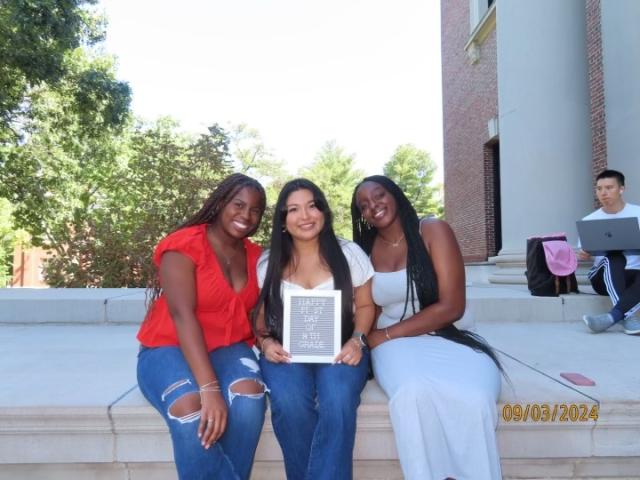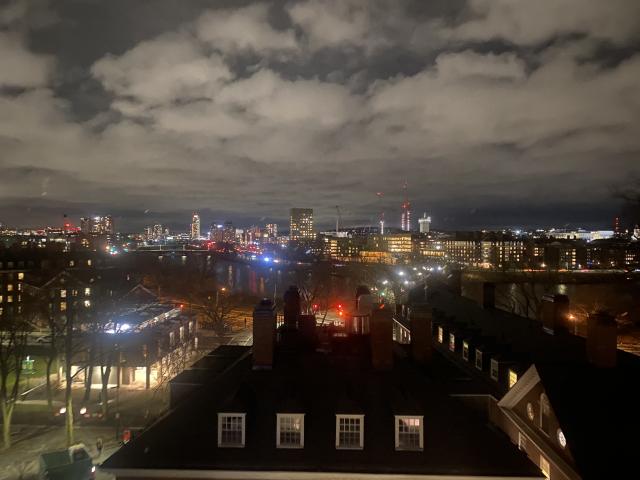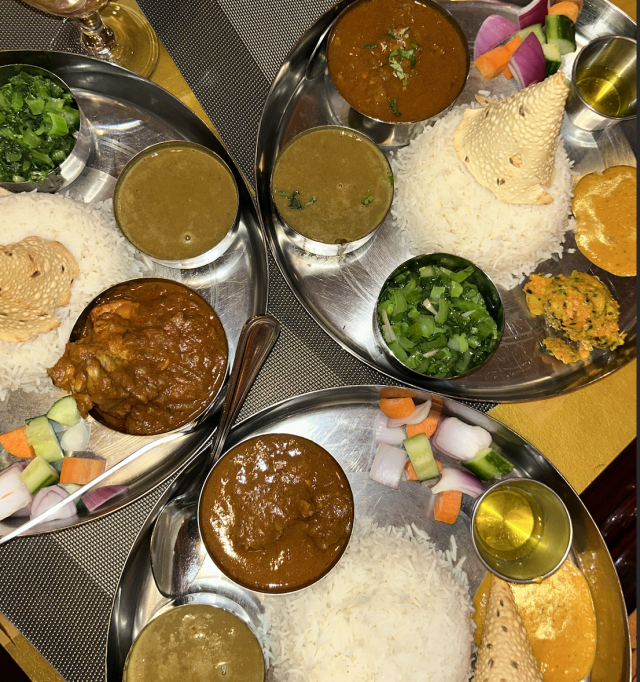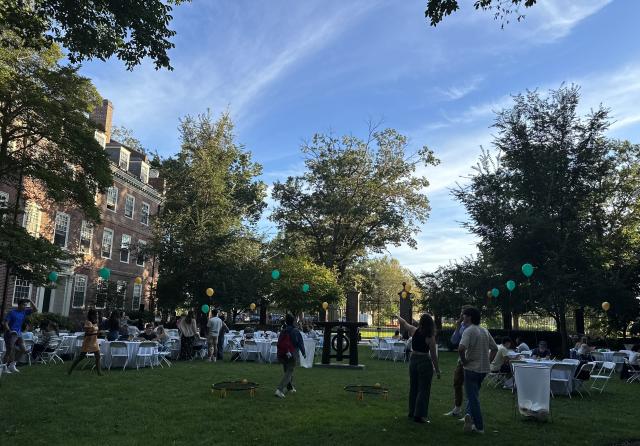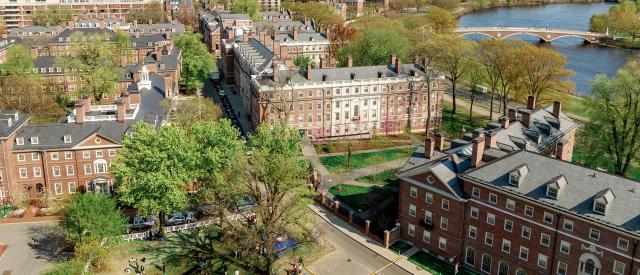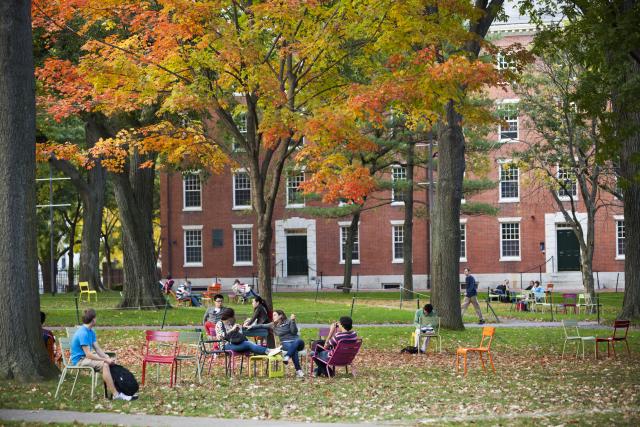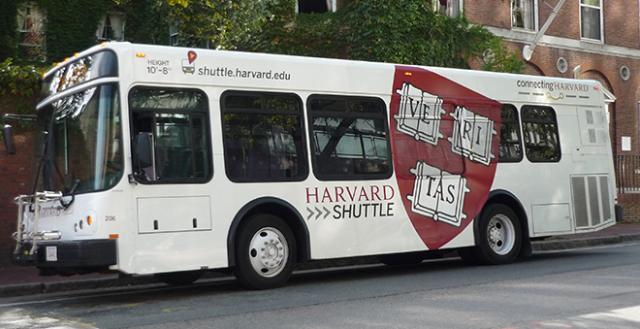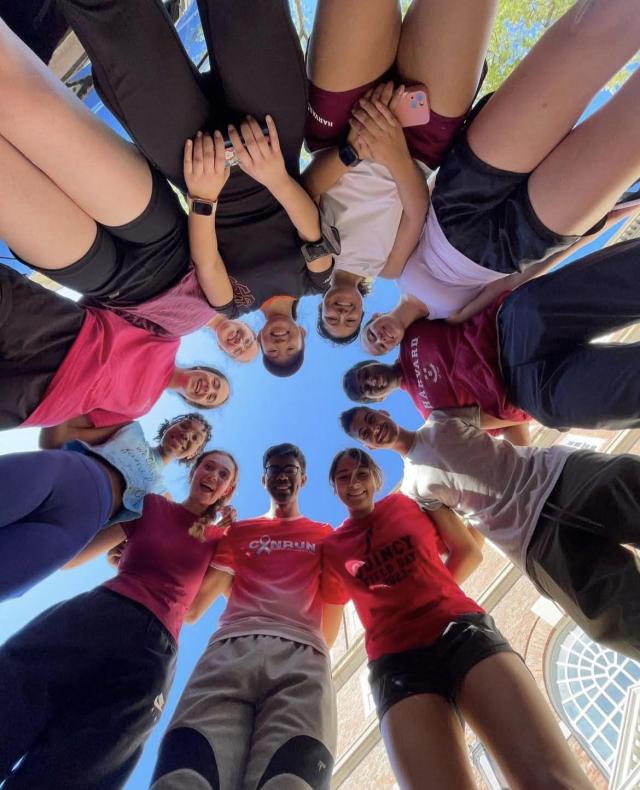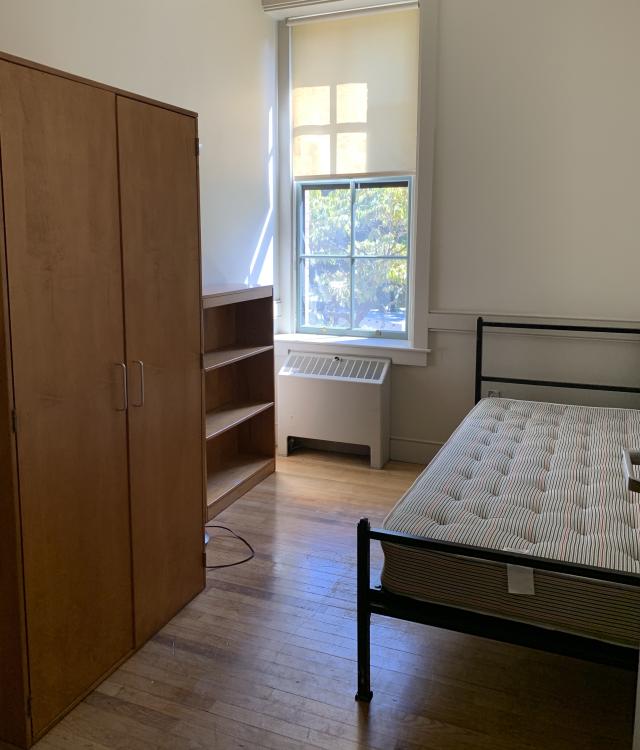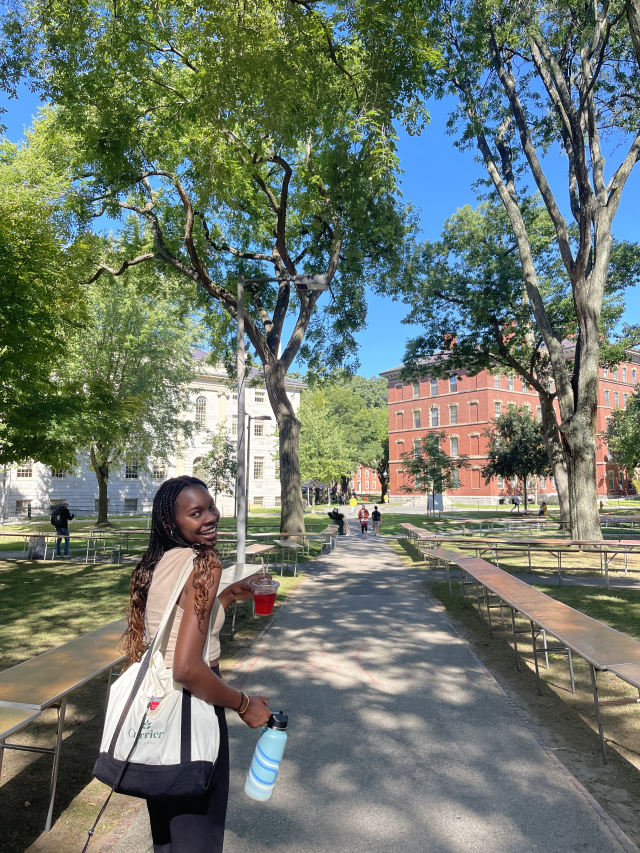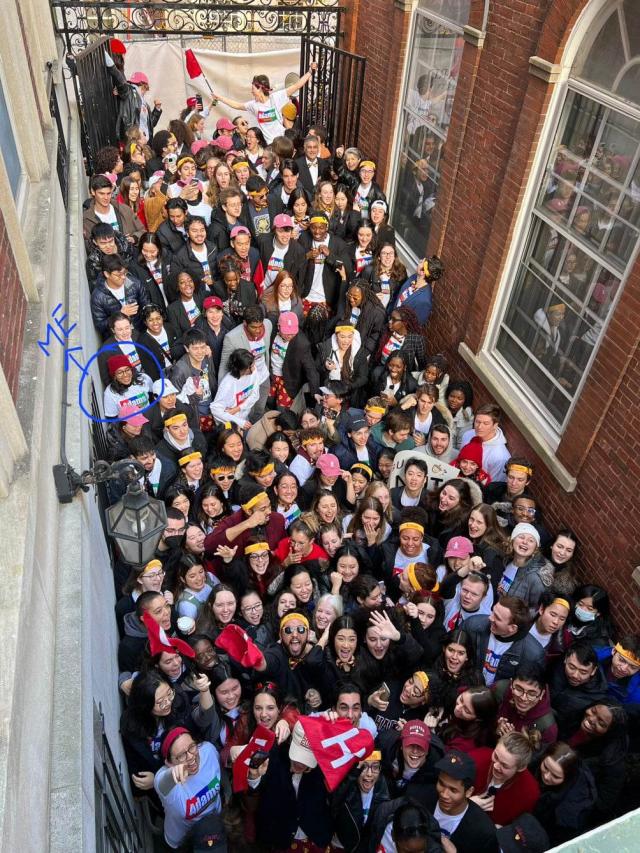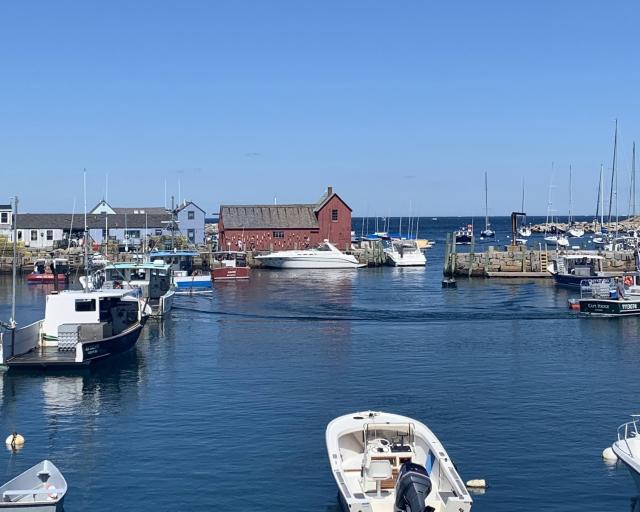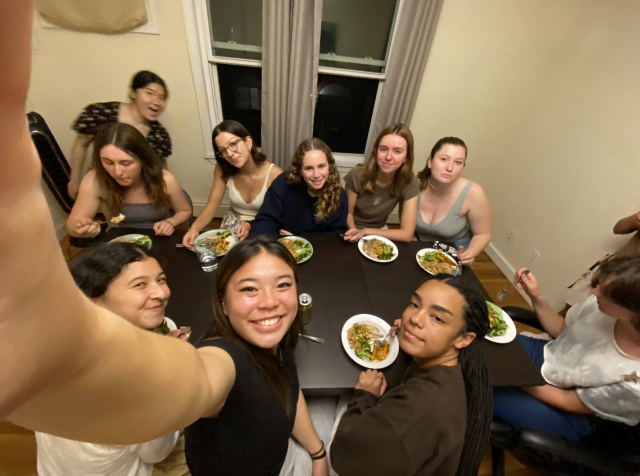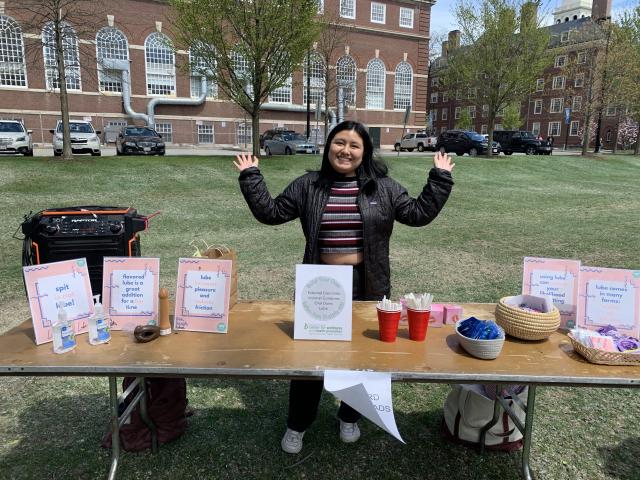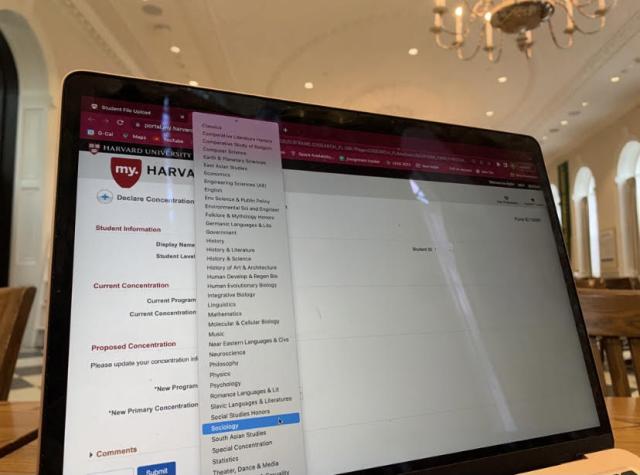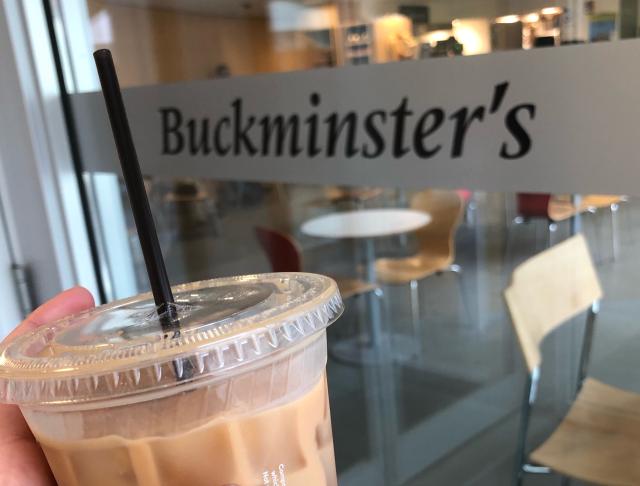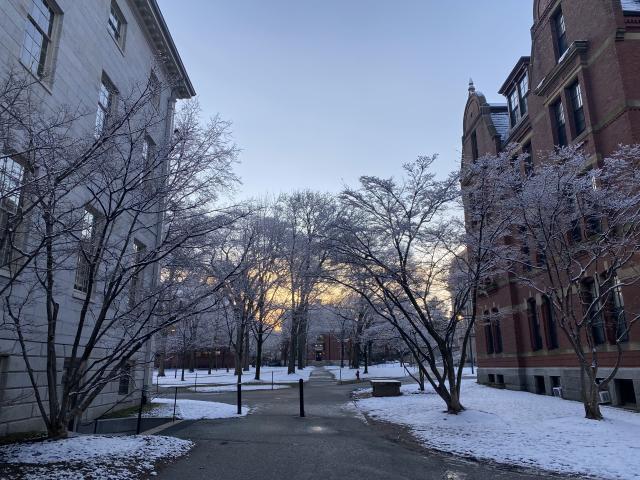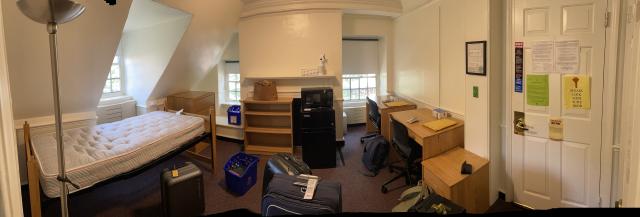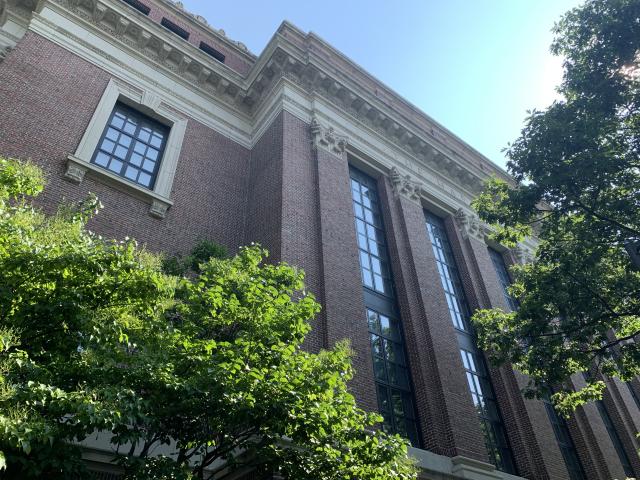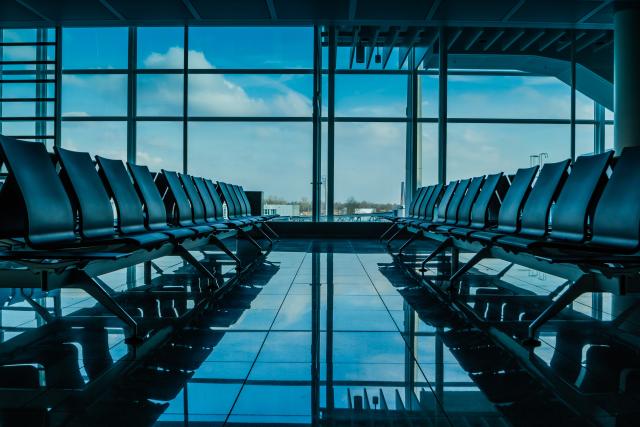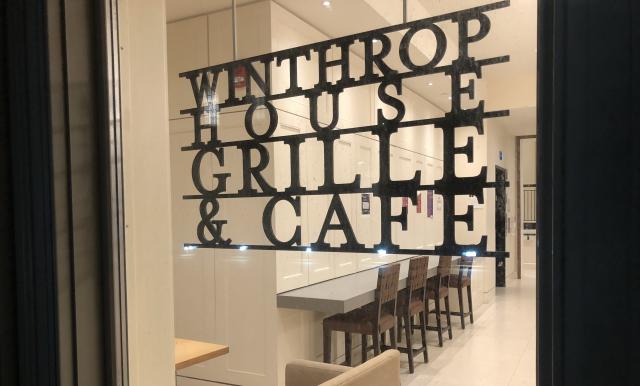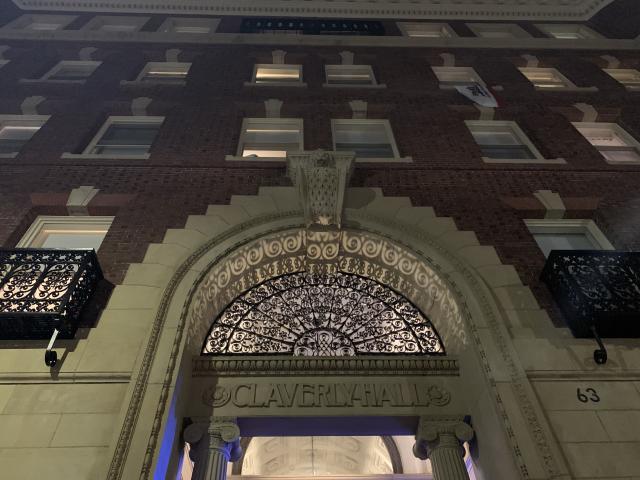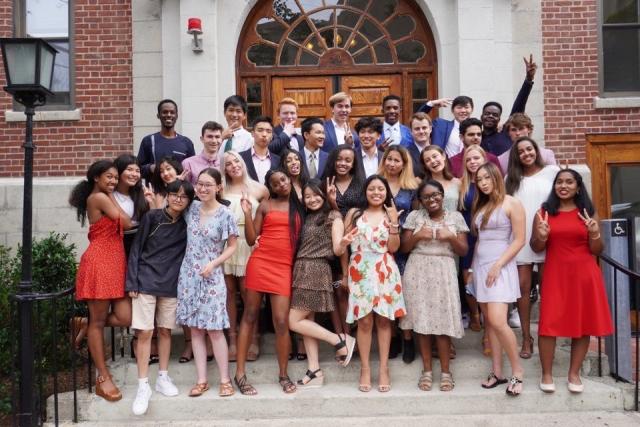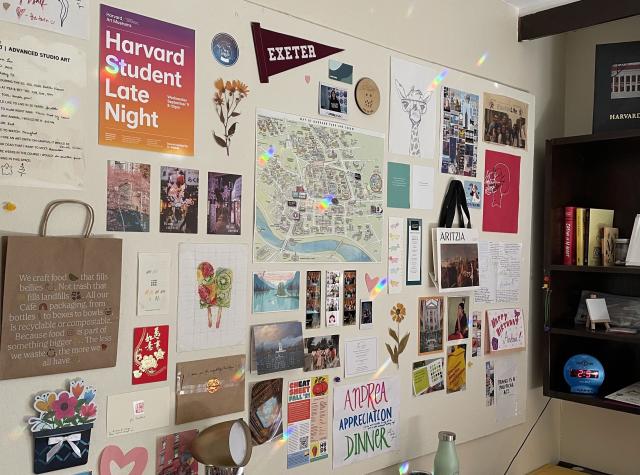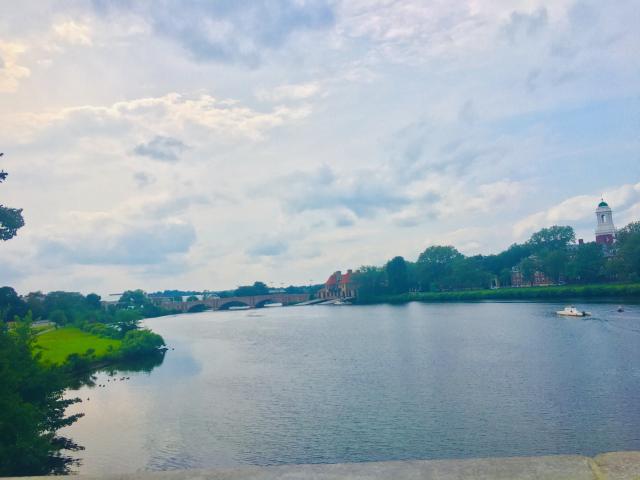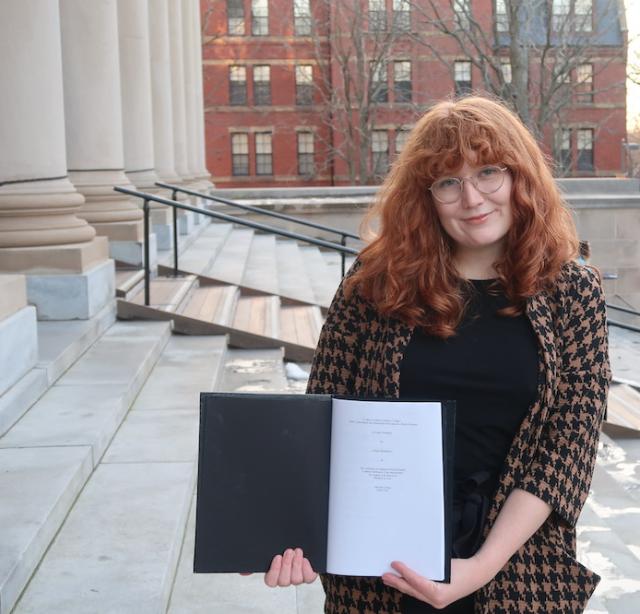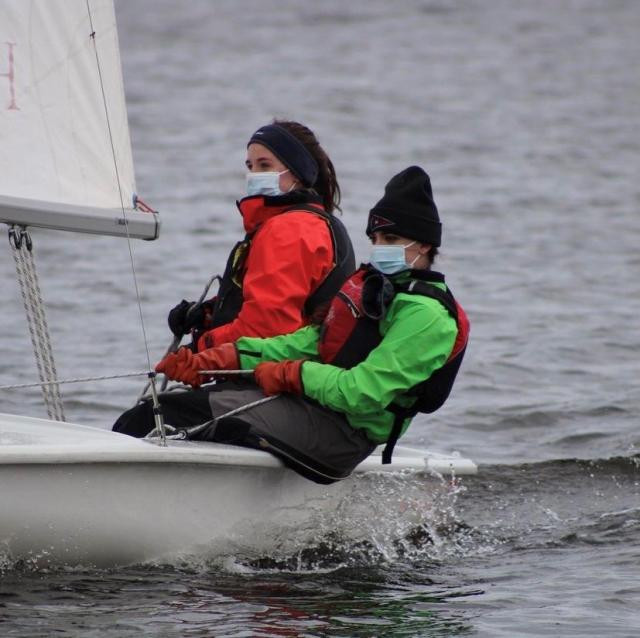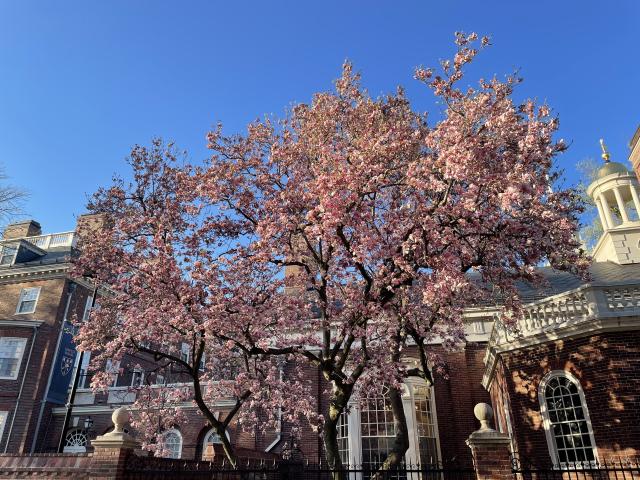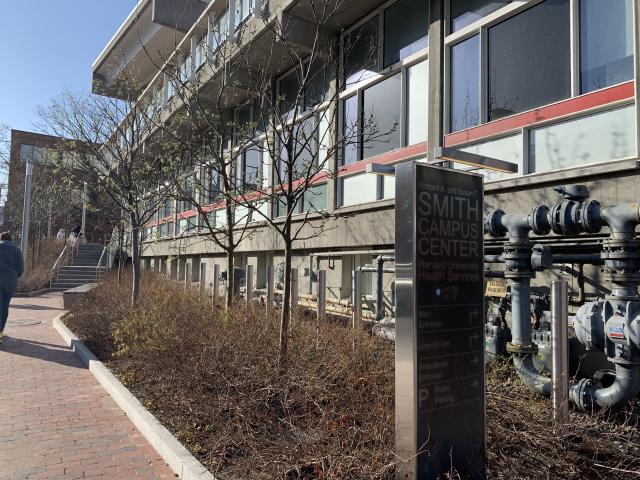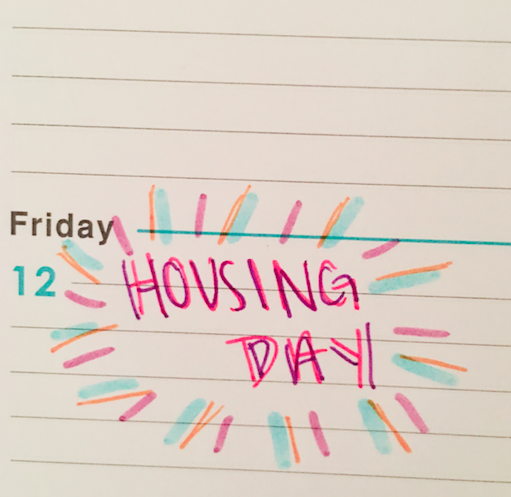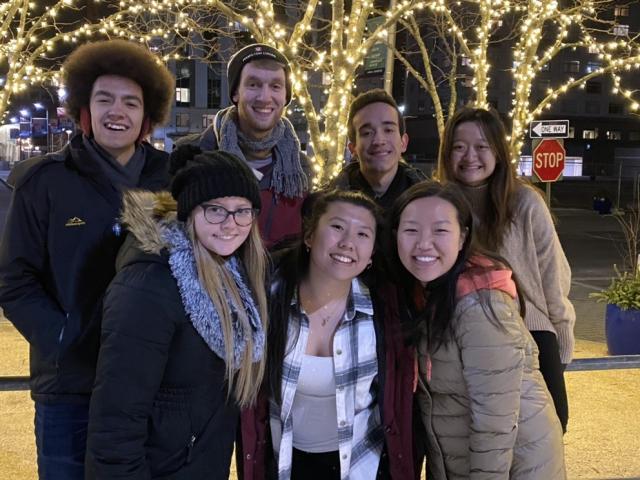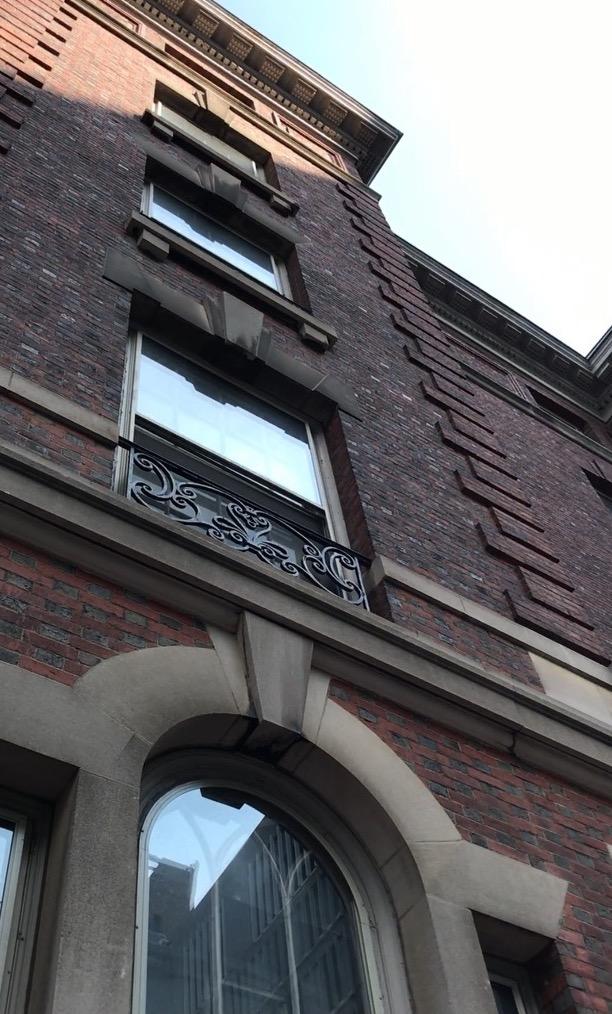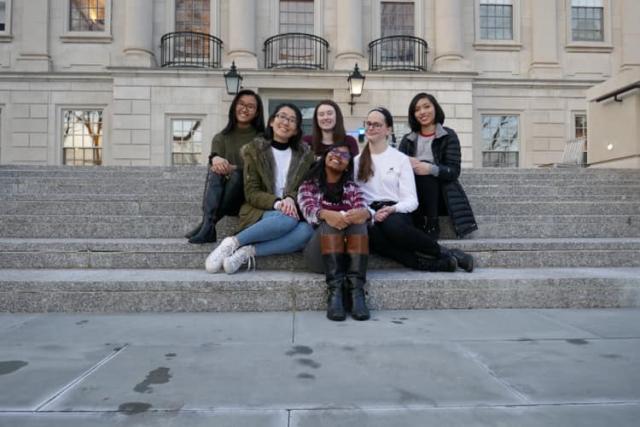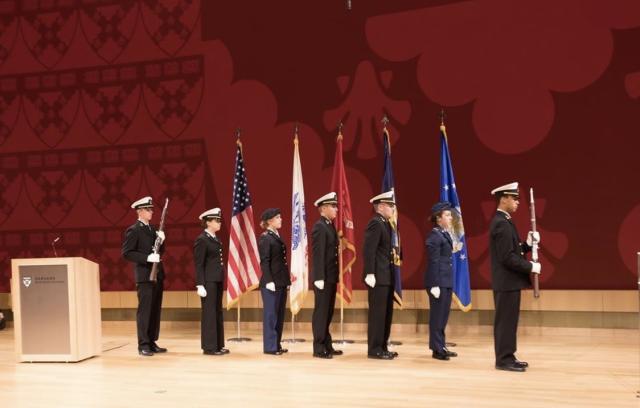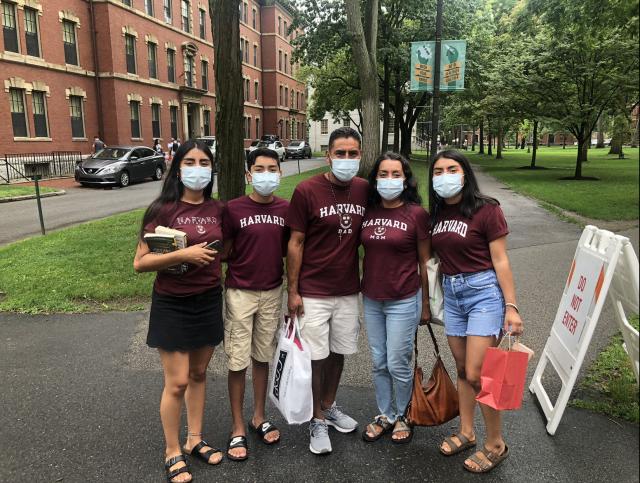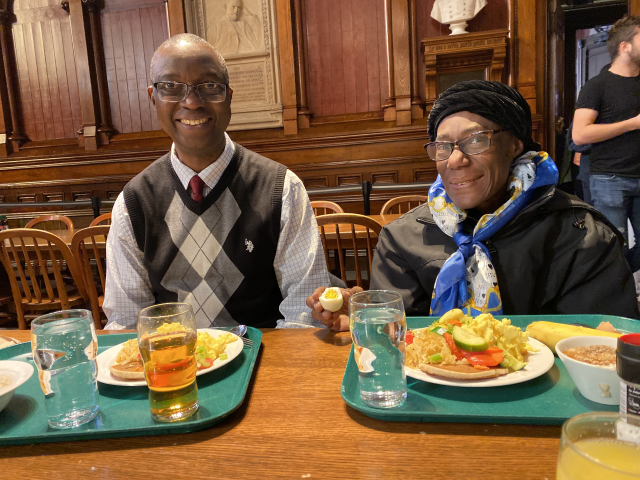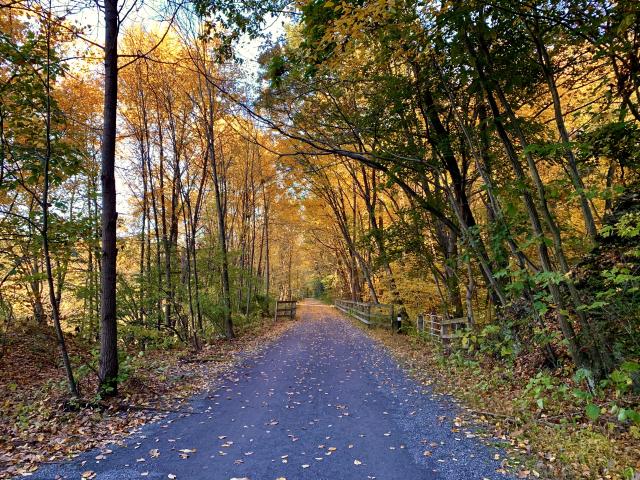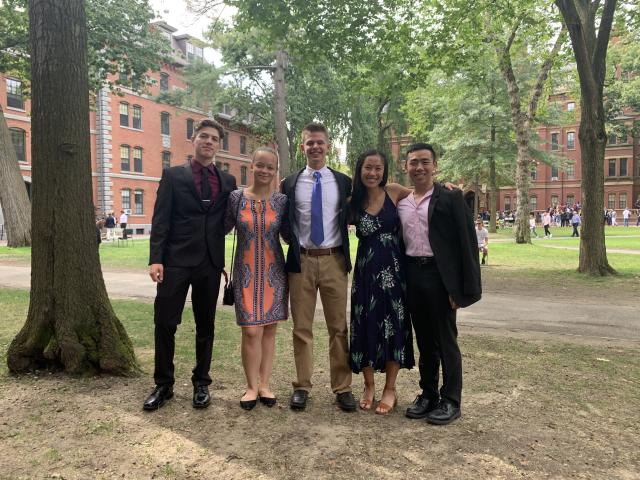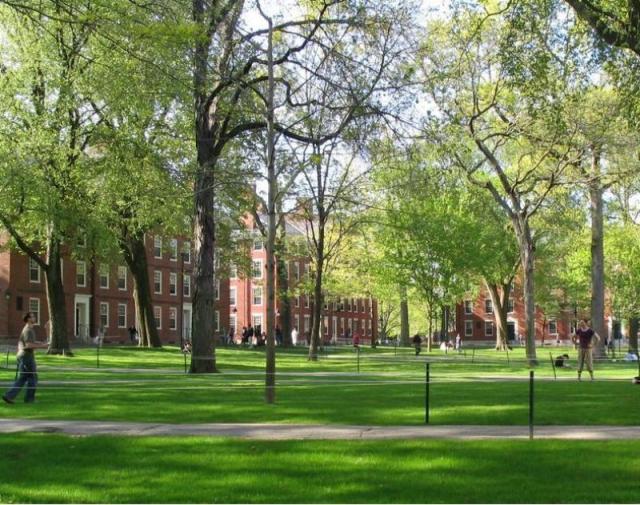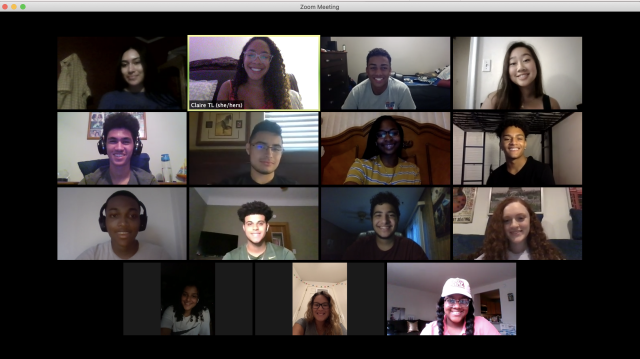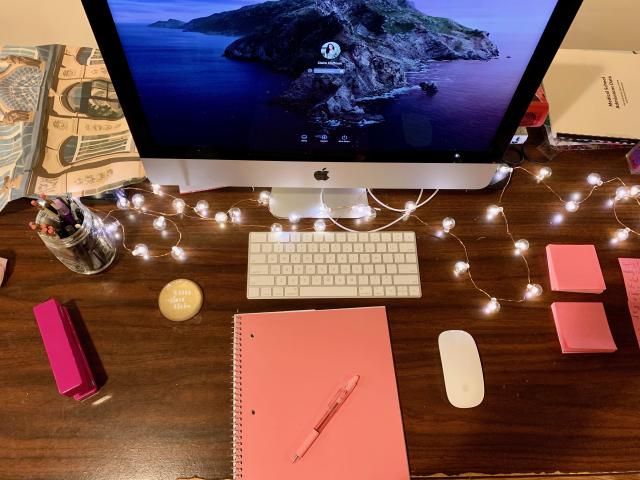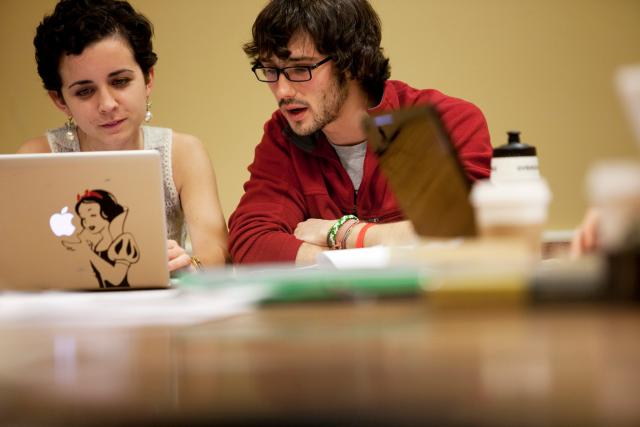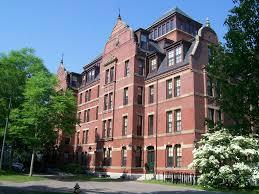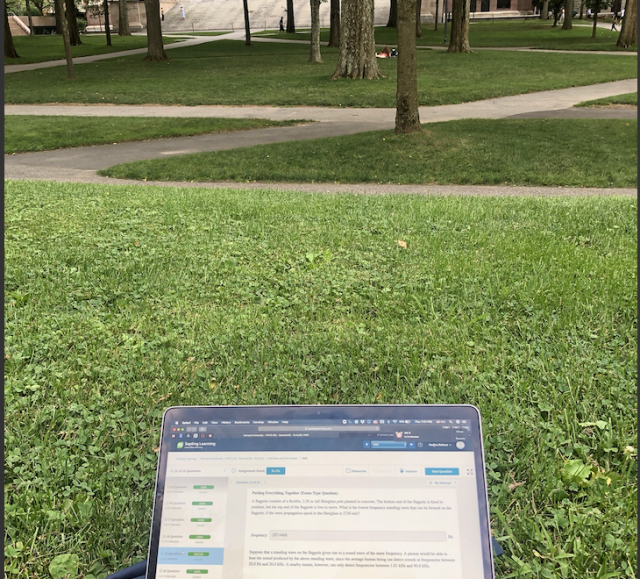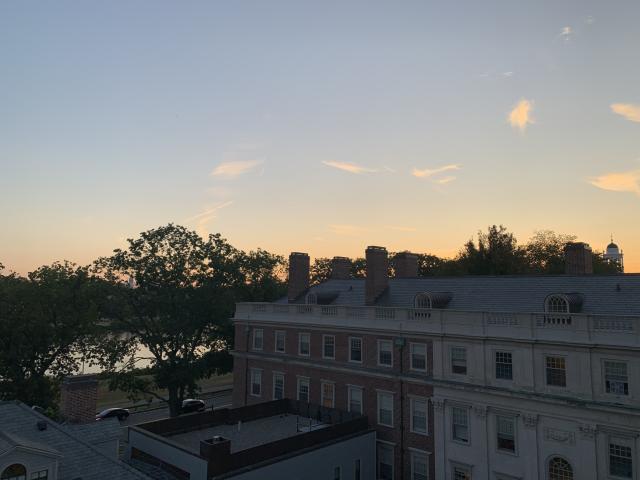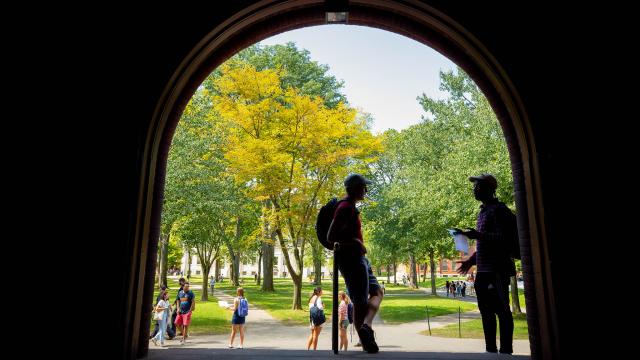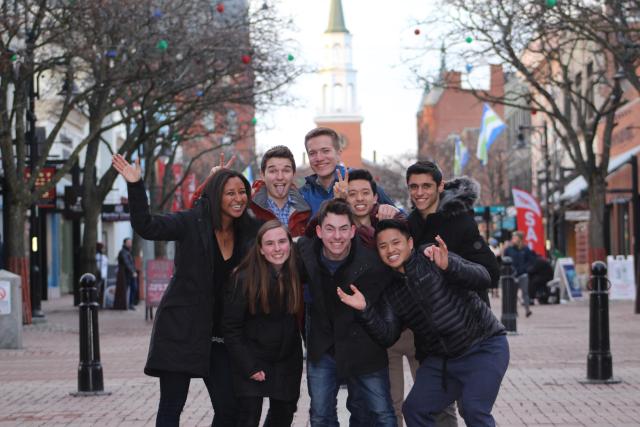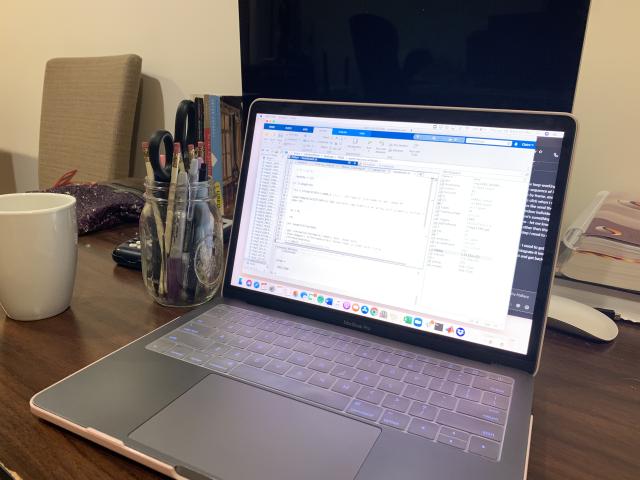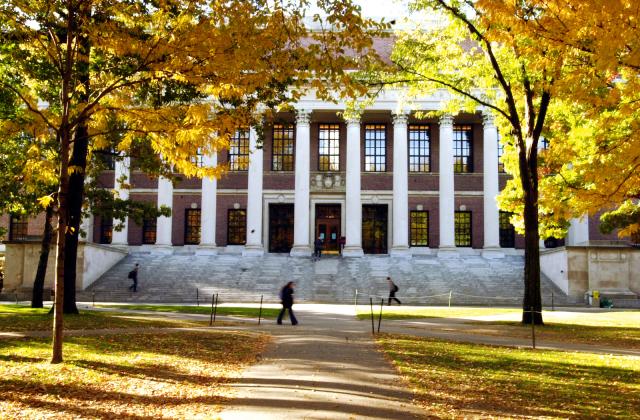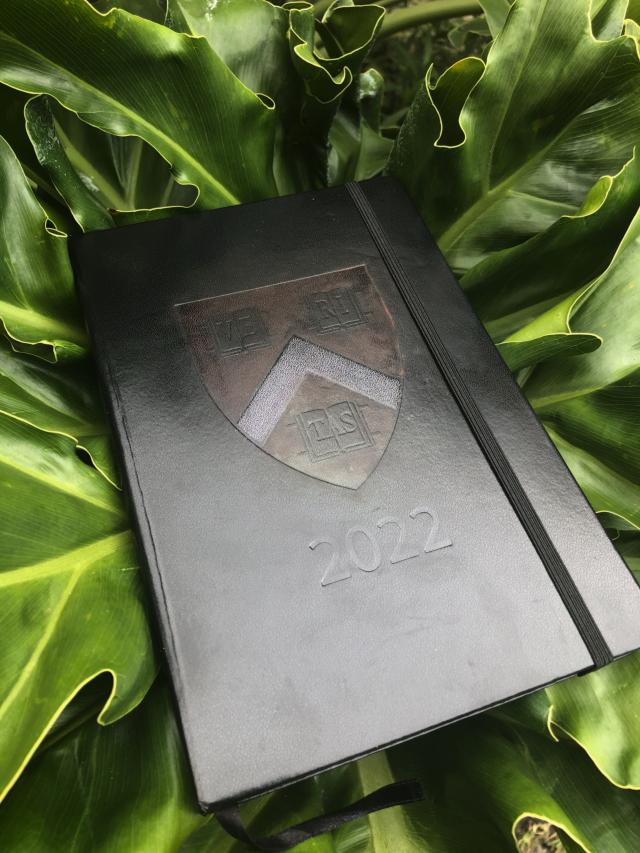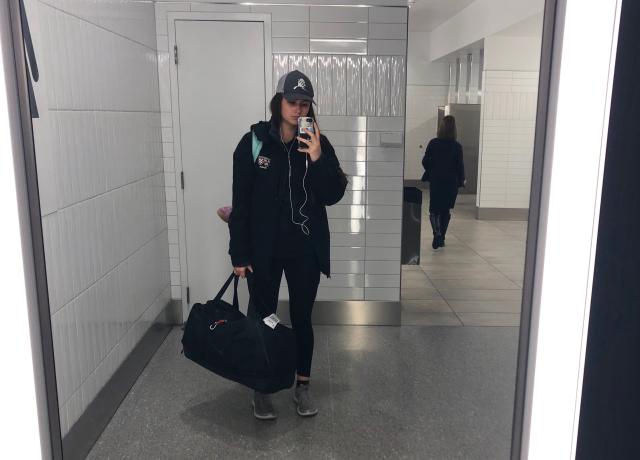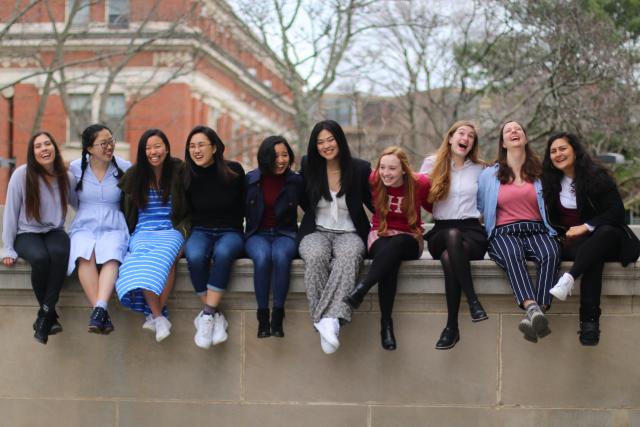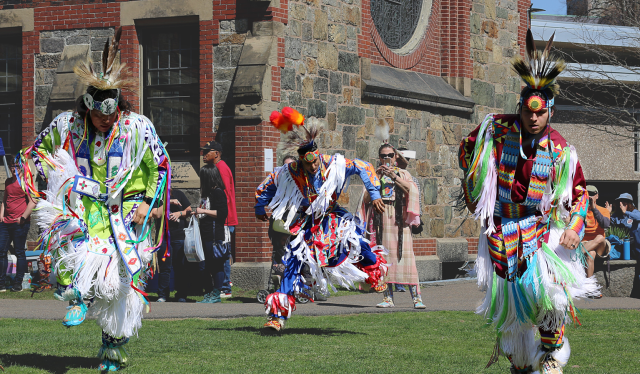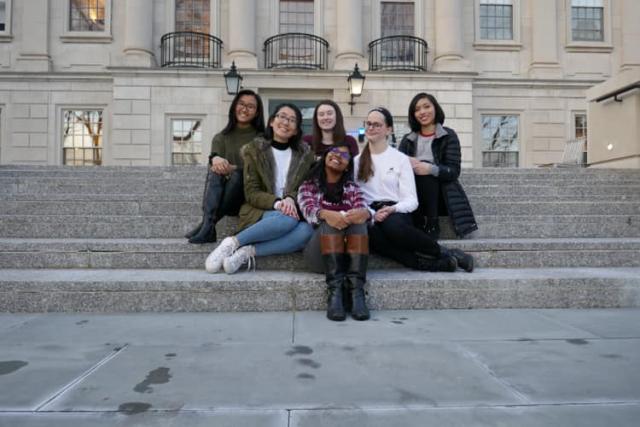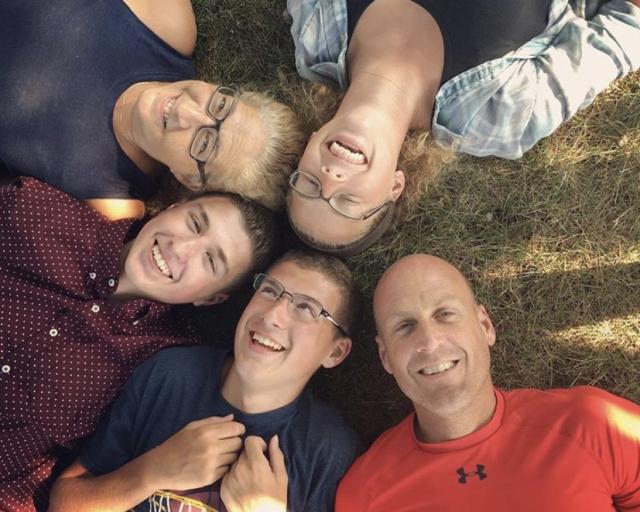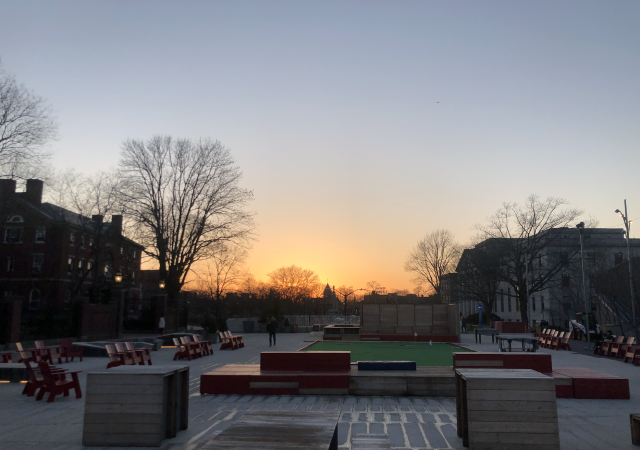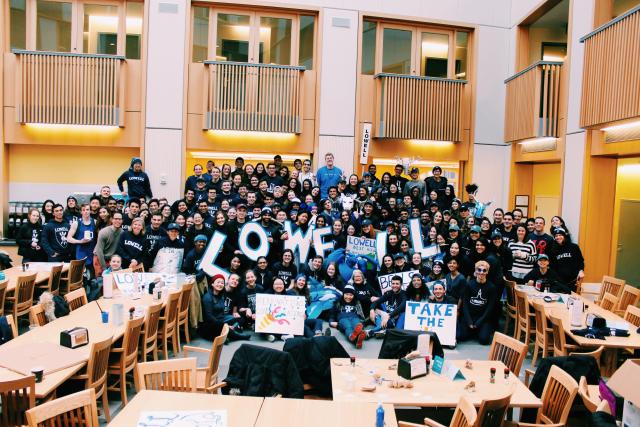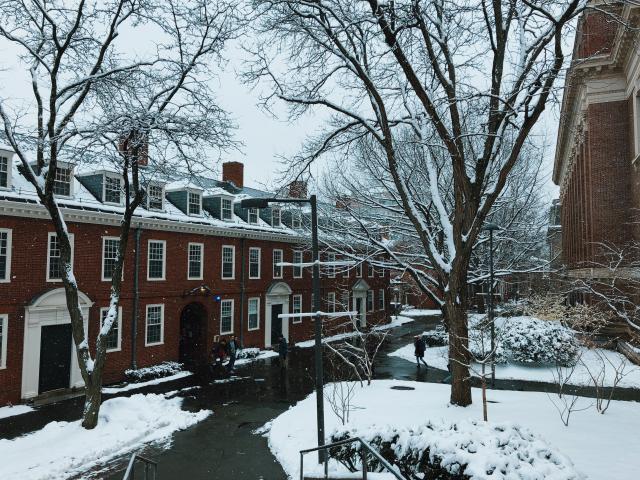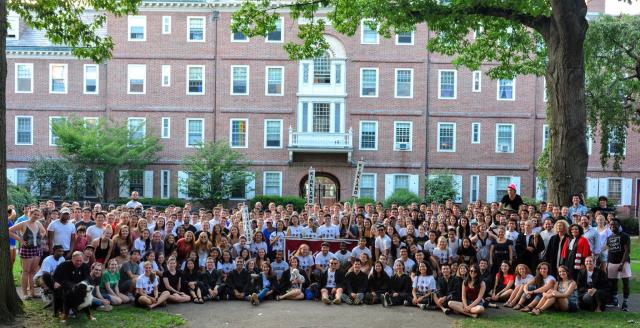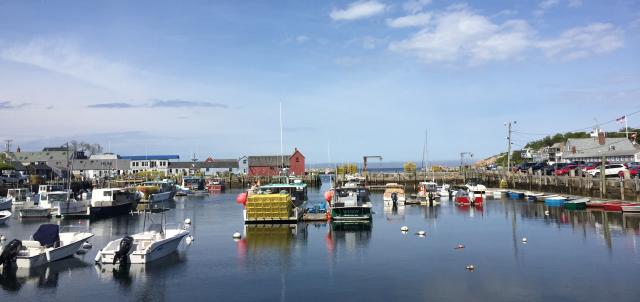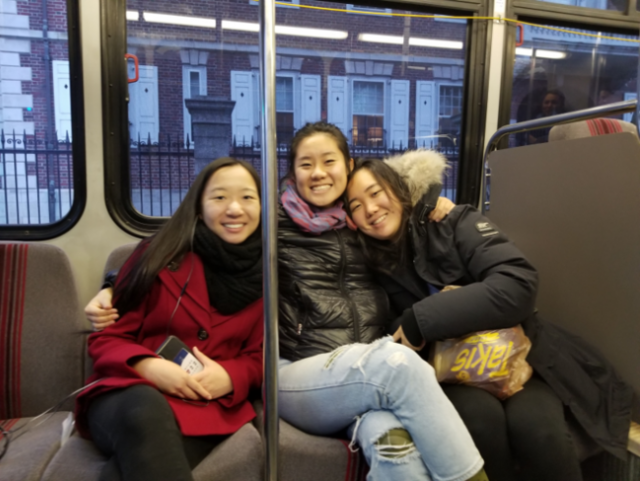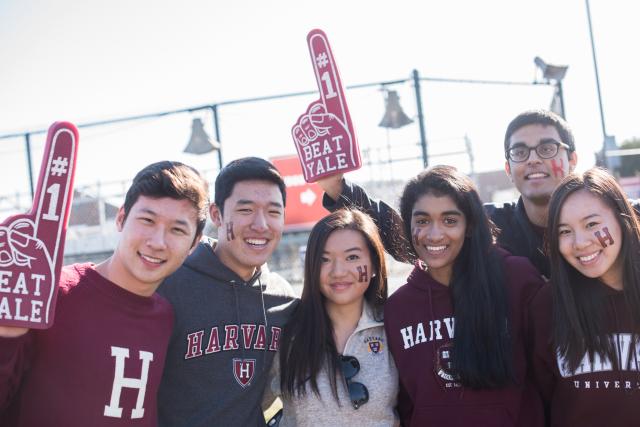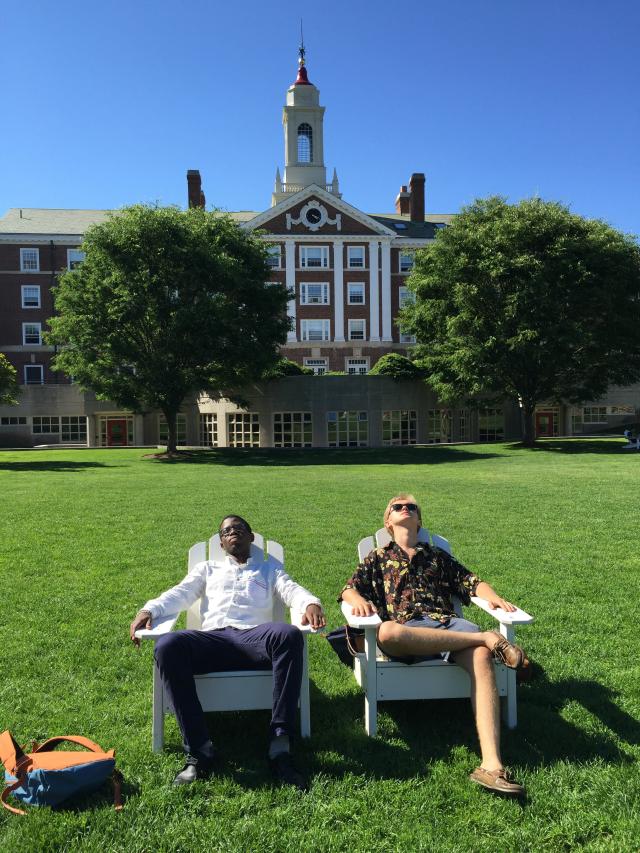In 2020, Kalos Chu described in their article “Walking is Overrated” that walking is, in fact, overrated. Two years later, I came to understand why.
At the beginning of this year, I decided to purchase a bike to commute from the Radcliffe Quadrangle (Quad) to Harvard Yard and back. After taking my bike for a stroll, I realized buying a bike would be one of the best decisions I’d make this year.
Why? Kalos’s blog describes ½ of my reasons! If, after reading Kalos’s defense, you are unconvinced, I’d like to try to convince you myself. In this article, I describe the other ½ of my reasons and why I think you should get a bike, too!
So, why bike?
Before getting a bike, one of my biggest questions to ask is, why bike?
Before I explain, I'd like to preface by saying that I didn’t consider getting a bike until I was placed into Currier House. My blockmates and I were gifted with the opportunity to live in Currier House, the best house on campus. However, that also meant a typical walk to class would be between 10-15 minutes.
Biking to Currier House
Biking to Currier House for meals and social events is both fun and fast!
To make the commute shorter, we talked about getting bikes. Before I knew it, I found a bike off of Facebook Marketplace (continue reading to learn about why this could be a good or a bad idea!). A quick walk, hello, and trade later, I was steering a silver steed in my hand.
I had never biked on the road before, so I started small. I biked in bike lanes only with my friends. Sometimes, I’d bike through Cambridge Commons or along the Charles River on weekends (more on this later). Biking came naturally, and—before I knew it—biking around Cambridge replaced walking.
“Ok, so you got a bike. What’s so special about getting a bike?”
Well, a few things.
First, biking cuts the time it takes to get from one place to another in HALF.
This year, I’ve had the fortune to study Chinese. The only downside is, the walk from Cronkhite (Currier House’s additional housing for this year) to the Vanserg building (where my Chinese class is held) takes 16 minutes. If this doesn’t seem too bad, my Chinese class is a 9 a.m. class and the commute is a walk from one of Harvard College’s outskirt locations to another…on opposite corners of Harvard’s campus.
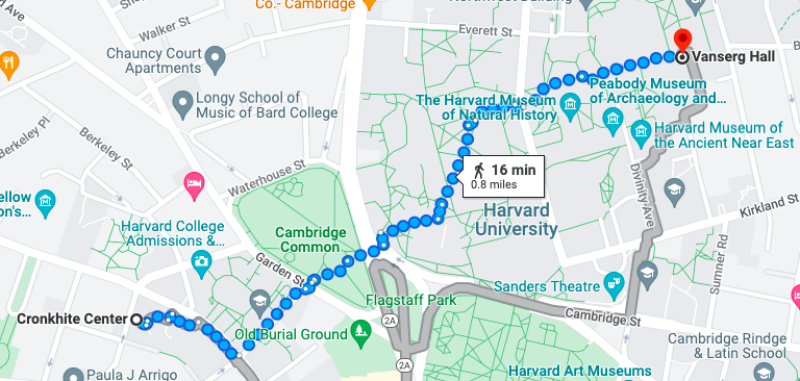
The Walking Path
In the spirit of Kalos’s argument, I'll explain that 16 minutes is not that bad until you consider what would happen if you forget something. If I realized I’d forgotten my Chinese textbook, that would be 8 minutes into the walk + 8 minutes back to Cronkhite + 15 minutes to get from Cronkhite back to Vanserg. Without walking at a moderate pace, that’s 30 minutes. 30 minutes.
How long does it take with a bike?

The Biking Path
Fortunately, it takes half the time! This means I can forget something, go back to grab it, and arrive at Vanserg (3.5 min + 3.5 min + 7 min) in the same amount of time as it would take me to walk to Vanserg. And if I don’t forget anything? I save 7 minutes that I can use for anything.
Imagine getting 7 more minutes of extra snooze time every morning. Doesn’t that sound nice?
More Math
How much time (on average) do you save per semester by biking instead of walking? (show your work)
The amount of time I spend walking for major commutes each day (on average) =
- 14 min (Cronkhite to Vanserg)
- 10 min (Vanserg to Harvard Art Museum)
- 10 min (Harvard Art Museum to Winthrop House for lunch)
- 11 min (Winthrop House to Science Center)
- 12 min (Science Center to Cronkhite)
- 12 min (Cronkhite to Currier House for dinner)
- 12 min (Currier House back to Cronkhite)
= 81 min ~ 80 min ~ 1⅓ hours
The amount of time I save (on average) by biking per day = 80 min / 2 = 40 min
(40 min/day)(5 days/week)(10 weeks/semester) = 2,000 minutes ~ 33 hours
To put it into context, 33 hours of sleep is enough to make up 4 all-nighters’ worth of sleep, with enough to spare to get to 12 classes on time instead of 5 minutes late.
What's more? I underestimated the amount I walk in my calculation—I considered only major scheduled commutes. I commute on weekends, too. And, did I consider spontaneous meals with friends, meetings, and grocery runs (especially grocery runs…Target is much cheaper and has a greater selection)? No! Quite frankly, I biked this morning to grab a coffee with a friend!
All-in-all, biking saves time (and a lot of it at that). Arguably, more importantly, biking removes commuting as an obstacle to doing things. You’ll never feel “too lazy” to walk half an hour to get to Central or Porter Square or bad for spending money to take the T.
Speaking of taking the T, you can save from biking instead of taking the T (or driving or BlueBiking, if this applies to you). In the long run, investing in a bike is a return on investment!
“Ok, isn’t this the exact same point that Kalos made—just longer and less concise?”
Yes, but there's more.
Second, biking is an incredibly enjoyable and rewarding activity in and of itself.
On weekends, the big road beside the Charles River is closed off, turning the road into a scenic playground for walkers, runners, bikers, skateboarders, rollerbladers, etc. Some of my favorite weekends this year have been spent biking alongside the river—a staple I will miss as winter looms around the corner.
Biking along the Charles River
Now, every Saturday, I bike along the Charles River. It's great to catch the morning breeze!
“Ok. But where else can you go? Is there anywhere that’s actually worth biking to?”
Great question! My friends have biked to Walden Pond, and I plan to bike to the Arnold Arboretum (one of the prettiest places in Boston if you’re interested in plants!). That’s a 4.75-hour walk to around a 1.5-hour bike ride and a 1.5-hour walk to a 30-minute bike ride, respectively.
Bikers also get the freedom of versatile travel. Bikers have full rights to the road but (in some areas) have additional access to parkways, biking trails, and shortcuts. Traffic jam? No worries. Just demount your bike and walk the bike to the next block down!
Biking through Cambridge Commons
Pro tip: Cambridge Commons is a common place to bike through between the Quad and the Science Center!
Bikers can even bring their bikes onto buses and the T (with certain regulations). This means you can shorten your commute to areas where biking is inaccessible or difficult and bike the rest of the way.
Long story short, biking can only make commuting faster, more convenient, and more enjoyable!
The Uglies of Biking (and tips to help improve them)
If you have never biked before in an urban setting, biking may seem intimidating. I myself had never biked in traffic until this year.
In this section, I want to share some things beginner bikers should be careful about as they start biking.
1) Bike theft
College campuses are ripe places for bike thieves. Many bikes are stolen every year, even on college campuses. Bike thieves have many ways to get to your bike—even if it involves removing the front wheel and pedaling away with the back wheel! Bike theft was my biggest worry before I got my bike. However, there are many things you can do to protect your bike. Here are a few.
- Get a good U-Lock: U-locks are harder to cut through than cable locks. Be sure to check out the safest ways to lock your bike with a U-lock to ensure as many parts of your bike are protected as possible! Harvard and Cambridge have convenient bike racks everywhere, making it super easy and safe to bring your bike out!
Lock up your bike!
There are secure bike racks all around campus.
- Lock your bike in high-traffic areas: Areas with heavy traffic will deter bike thieves, who usually work in the shadows.
- Take your bike inside somewhere safe (if possible): Leaving your bike outside will not only expose your bike to the elements but also make it easier for bike thieves to watch and access your bike.
- Try getting a bike without quick-release mechanisms: Many bikes nowadays have quick-release wheels and accessories for ease of access. However, quick-release parts can easily be stolen. If you already have quick-release wheels, consider getting security skewers to lock them in place.
- Remove all removable items on your bike (such as lights and bags): If you do have quick-release accessories, be mindful about keeping them on your bike. My bike light was stolen because removing it was as easy as slipping it off the holder! These accessories are easy to keep on you, so taking the extra few seconds to remove them before leaving your bike is well worth it.
- Get your bike registered at the HUPD: Many student bikers do not have their bikes registered. Registering your bike is as easy as going to the HUPD and filling out a form that describes the specifications of your bike. With your bike in the system, it would be much easier to recover your bike if it were ever stolen. The sticker you get to put on your bike also deters thieves! Registering your bike is free, and there’s no reason why you shouldn’t!
2) Road safety (accidents)
Biking on the road carries the same dangers as driving on the road: getting in traffic accidents. As a biker, you would be responsible for knowing and abiding by traffic rules. You will also be commuting beside cars and trucks. It can be dangerous, but keep in mind that Cambridge and Boston are bike-friendly cities for a reason.
- Use bike lanes where possible: Cambridge and Boston come with the perk of great bike lanes! Using bike lanes where possible helps you stay safe and facilitates smoother traffic. Earlier today, I saw a biker biking outside the bike lane in the wrong direction on a one-way, and they almost ran into a pedestrian! Be safe, and use bike lanes where possible so others know where you are.
- Get a bike helmet: It may be tempting to swing yourself onto your bike and take off, but investing in a good bike helmet is crucial for staying safe on the road. I’d recommend buying a helmet with the Mips® system, a well-researched helmet infrastructure that protects your head against dangerous rotational forces.
- Know the road (which includes knowing one-ways): Before you embark on your ride, be sure to check out where you are going and how you plan to get there. While stopping and checking midway is easy, it’s much safer to study the path beforehand so you know what to expect. In particular, know which roads are one-way so you don’t bike against traffic!
- Look over your shoulder: Just as you look over your shoulder when driving a car, looking over your shoulder while biking will help you stay safe when merging onto larger roads. Bikers have full rights to the road, but looking over your shoulder will make sure you don’t merge into oncoming traffic.
- Be safe rather than sorry: Be sure to avoid the common “Oh, that truck definitely sees me, they won’t pull out while I’m passing them!” or “That space between the truck and the sidewalk looks just wide enough, I should be able to make it past safely!” mindsets. These will often get you into accidents!
- Signal turns: This helps drivers behind you know where you intend to go!
- Get lights/reflectors: Bikers are required by law in MA to have front and back lights as well as side reflectors (if they’re not already built into the pedals of your bike) past sundown. It’s especially important when biking on big roads at night when you become nearly if not completely invisible to drivers without lights and reflectors.
- Be respectful: All in all, be respectful of others on the road and you likely won’t find yourself in dangerous situations!
3) Bike maintenance (and additional costs)
Bikes are complicated contraptions, but they are not impossible to repair when broken. Sometimes, your brakes will fail, your chain might fall off the drivetrain, or your seat is too high (I have experience with this one). It’s highly recommended that you take your bike to the bike repair shop if you don’t know how to fix it yourself, but many things you can fix yourself!
- Get a bike multitool: The multitool allows you to change bike chains yourself, adjust your saddle (seat) height, and fix many other smaller issues. You can, for example, replace a tube, align derailleurs, etc.
- Consistently clean and lube your bike: Boston is a rainy city, and you might find yourself biking in the rain. With biking in the rain comes mud, grime, and sand that can get lodged into your chain, gears, and wheels. Regularly cleaning your bike with soap and water and degreasing and lubing your bike chain will protect your bike from damage and ensure it works smoothly. Taking these short precautions can deter bigger problems and repairs down the road!
- Keep your bike out of the elements (another reason to keep it inside if possible): Rain, rapid temperature changes, and snow can accelerate the deterioration of your bike to erosion and rusting. Keeping your bike indoors or in a protected space will ensure it doesn’t get deteriorated by the elements!
4) The cost
Bikes can be expensive, but they don’t have to be. Trust me when I say the price of a bike was my second reservation when deciding to get one. It is not cheap, but a reasonably priced bike (or a new one, if you’re willing and able to pay for it!) is well worth the investment.
- Consider finding a bike on Facebook Marketplace or Craigslist. In Cambridge and Boston, you’ll find many bikes for quite cheap! I bought my bike for a little over $100 and it is a 24-speed hybrid road bike. So far, I have not needed to repair anything—I’ve only adjusted the bike seat and gotten lights for it.
- Try checking out bikes at the annual bike sale at Harvard every fall or from friends in the area. You’ll be surprised by how many bikes you can find!
Other (helpful) tips:
- When you’re biking on the road, try cocking the pedal by backpedaling when you stop. This way, you can put your body weight on the pedal to propel yourself forward more quickly from a stop.
- Make sure your saddle (seat) height is properly adjusted. A saddle that is too low can lead to bike injuries down the road (called biker’s knee) due to the excess pressure you’d put on your knees when you pedal. On the other hand, a saddle that’s too high can make it hard to control your bike or stop.
- You can lock your helmet up with your bike by looping a closed part of the helmet strap through your U-lock before locking the bike up.
- Keep in mind, Harvard has NO BIKING ZONES where you should demount and walk your bike. It can be tempting to ride right through Harvard Yard (one of those places), but you should be respectful of others and avoid doing this!
Bike Stores Nearby
A bike-friendly city, Cambridge and Boston house many bike stores where you can buy a bike, get accessories, and repair your bike. Some of the most popular among Harvard students include Cambridge Bicycle and Landry’s Bicycles, but the list is certainly not exclusive to these two. They are super knowledgeable and are happy to field repair requests, tune-ups, and questions. They also sell bikes and bike accessories if you are interested!
The End
In the end, biking at Harvard is like having a chauffeur everywhere you go—except you’re the driver. Getting a bike has certainly been one of the best decisions I’ve made this year, not only because it has made my life inconceivably easier but also because it has made every trip to and from class a fun one. For a total investment of around $200, my steely steed has saved me hours of sleep and precious minutes I’ve used to study for a test or finish a problem set.
Like Kalos, I have stopped walking altogether, and I think you should consider doing it, too. As this series comes to a close, it’s only a matter of time before the next great deal on Facebook Marketplace is posted.
If you choose to get a bike…
- Welcome to the community!
- Happy biking!
A Biker's Point of View
Taken on a bright Saturday morning.
I would like to extend a thank you to Kalos Chu ‘23 for their inspiring article on biking. I don’t miss walking, either! Also, thanks to my friends who planted into my head the idea of getting a bike. I do not regret it one bit.

